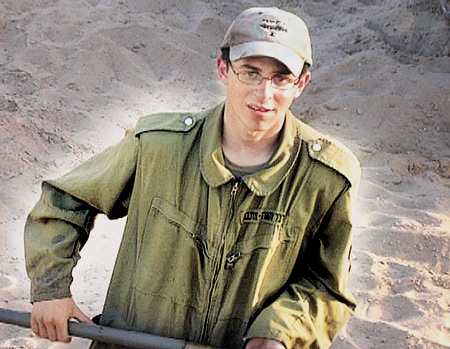
Bloody Gaza. Once again, to quell rocket fire, the IDF has rolled into the Gaza strip and dominated its skies, and 101 Palestinians were killed in pitched battles, according to wire services and the IDF's tally. Two Israeli soldiers were buried yesterday after fatal shootings during the incursion, which was launched after a rocket struck dead an Israeli student in Sderot.
Leaders from the Palestinian authority and Israel both have labelled this weekend's violence war and muttered the H-word (holocaust with a lower-case H.)
The violence has been ramping up for many weeks, with Israel hinting about an invasion, and further bloodshed seemed inevitable once long-range Grad rockets struck the port of Ashkelon.
Seventeen were fired over the weekend, supplementing 40 qassams a day that rain havoc in Sderot.
The typical ratio of 100 Palestians to avenge the death of a couple Israelis seems to be holding.
As Condi Rice checks into the David Citadel again, Israeli tanks are pulling out of northern Gaza, and Abbas has pulled out of peace talks. No one is placing bets on how soon the bloodshed will resume or another IDF blitz will be ordered. Restraint or concessions do not seem to be in the offing by either side. The brutality of this relentless conflict suggests that present policy is not working. One colleague wonders whether opening up Sderot to Palestinian day-workers, which would make it counter-productive for militants to keep up the assault of qassams, would be a start. Something's gotta give.
Bloggers inside Gaza say:
"I had a long day, an awful day, taking photos and writing from on the ground in Gaza City and northern Gaza. I met with two children who survived Wednesday's Jabalya soccer bombing: the other four kids were, as you likely know, killed. One of the children I saw had no flesh on their legs, had burns all over their bodies." - Rafah Today – Daily Life in Palestine, Mohammed Omer in Rafah, Gaza
"We celebrated Yousuf's fourth birthday today. We ate cake. And we counted the bodies. We sang happy birthday. And my mother sobbed. We watched the fighter jets roar voraciously on our television screen, pounding street after street. Yousuf tore open his presents, and asked my mother to make a paper zanana, a drone, for him with origami; And we were torn open from the inside, engulfed by a feeling of impotence and helplessness; fear and anger and grief; despondence and confusion." - Raising Yousuf, Unplugged: diary of a Palestinian mother, Laila El-Haddad in Gaza City
"Walking to the Red Crescent Society (I do not have fuel in my car), I can hear successive explosions, from different parts of the city, and the drone in the sky. I can also clearly see the security forces soldiers, outside their headquarters, as it is under threat of bombing by the Israeli military forces. I had to walk very fast , expecting the worst. Arriving at work, I find we do not have enough fuel for the ambulance and other vehicles. No fuel has entered Gaza for 17 days , our store has been exhausted.Oh my God, this situation will have its disastrous impact on our health facilities." - From Gaza, With Love, Dr Mona El-Farra, Gaza City

Suffer little children. Pictured right, a direct hit on a Sderot apartment house, which took out the wall of a baby's nuresry last month. Says Israeli prime minister, Ehud Olmert:"Nobody in the world would deny that striking at Hamas strengthens the chance for peace." Huh?
Timeline of recent events: November 27, '07 Bush hosts peace talks between Israeli leader Ehud Olmert and the Palestinian president Mahmoud Abbas at Annapolis. The conference is billed as a starting point for a negotiated peace agreement. Eventually, all sides would agree to a separate Palestinian state to exist, alongside Israel, and so end years of territorial conflict.
2008
January 25 Palestinians in the grip of an Israeli economic blockade spill over the Egyptian border to buy essential provisions.
February 4 An Israeli woman is killed by a suicide bomber in Dimona, in the first such attack by Palestinian militants in over a year. Israel blames Hamas's armed wing, and pounds Gaza with rockets, killing at least 10.
February 27 An Israeli helicopter fires missiles at vehicles carrying suspected Palestinian paramilitary. Five are killed.
February 29 Israeli border towns come under attack from Palestinian militants. Israel's deputy defence minister says his forces will have "no choice" but to invade Gaza if the attacks continue.
March 2 Palestinian leader Mahmoud Abbas suspends contact with Israel after their sustained assault on Gaza which left about 100 people dead.


































